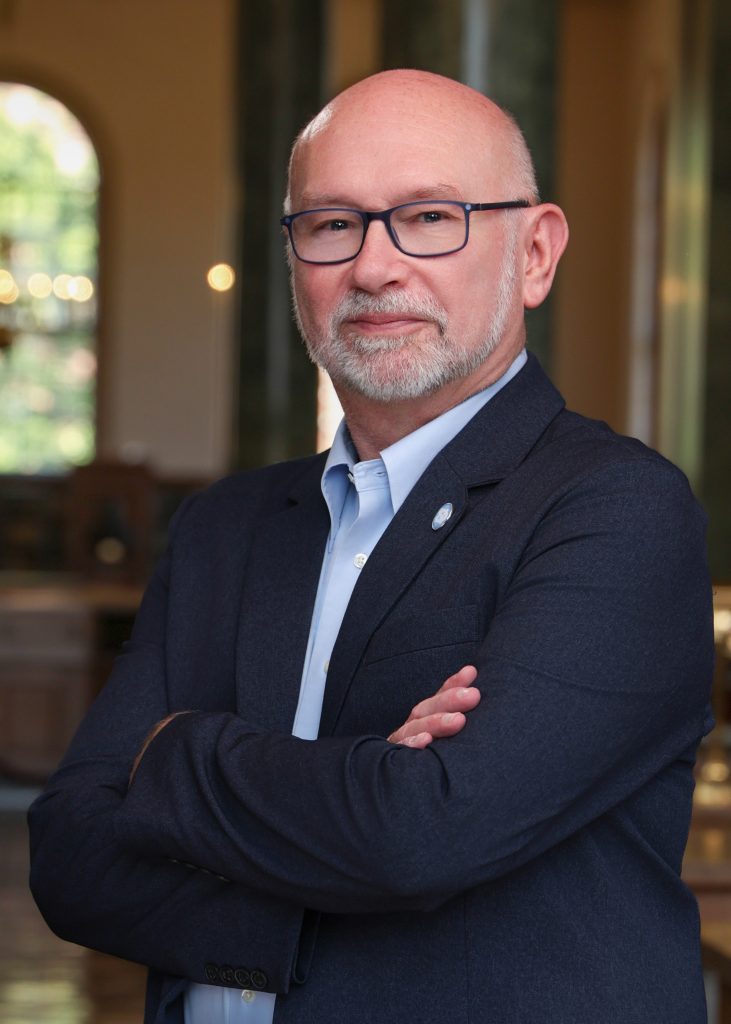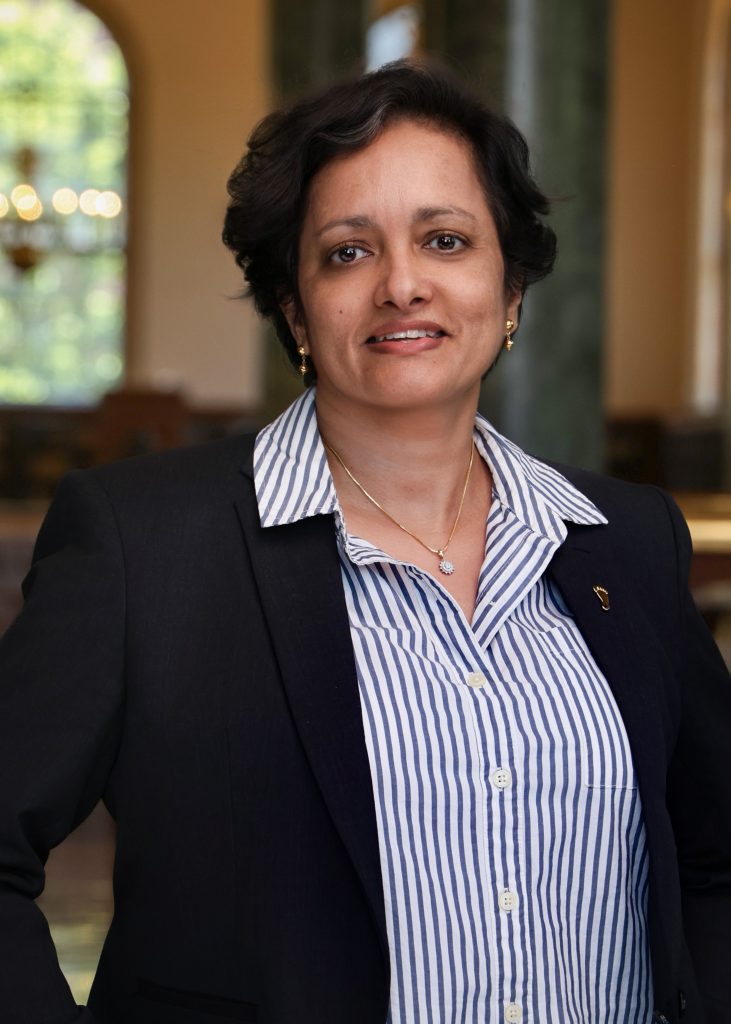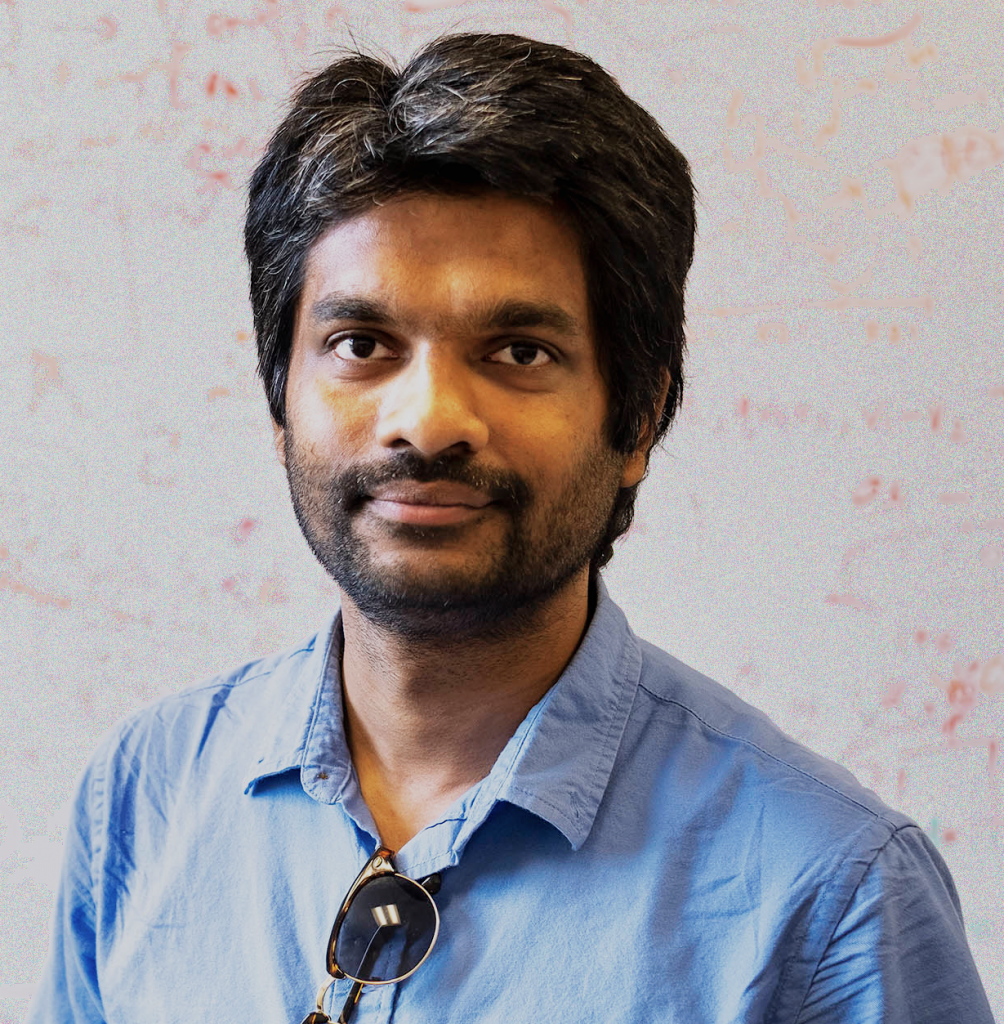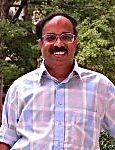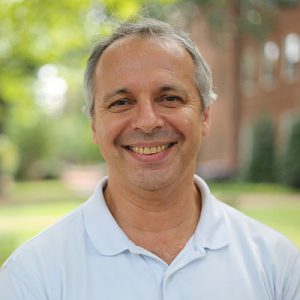Stanley C. Ahalt is the Executive Adviser and Domain Scientist for Team Science at the Renaissance Computing Institute (RENCI) at UNC-Chapel Hill. Previously RENCI’s Director, Dr. Ahalt is the Inaugural Dean of the UNC School of Data Science and Society (SDSS) as of June 2022. Dr. Ahalt is also a Professor in the UNC Computer Science Department and the Associate Director of Informatics and Data Science (IDSci) in the North Carolina Translational and Clinical Sciences Institute (NC TraCS), UNC’s CTSA program; in this role, Dr. Ahalt leverages his expertise and resources to foster clinical and translational research across the UNC campus.
He came to RENCI as Director in 2009 from Ohio, where he served as executive director of the Ohio Supercomputer Center (OSC) from 2003-2009 and as a professor in the department of electrical and computer engineering at The Ohio State University for 22 years. Dr. Ahalt launched several model programs at OSC, including Blue Collar Computing, a national program to bring high performance computing to a wide spectrum of industries and applications, and OSCnet, a leading high-speed research network for K-12 schools, higher education and economic development. He also served as co-chair of the Ohio Broadband Council, the coordinating body for the state’s initiative to extend the reach of the Broadband Ohio Network.
Dr. Ahalt earned his Ph.D. in Electrical and Computer Engineering from Clemson University and has over 30 years of experience in data science, signal and image processing, and pattern recognition/ML.
To learn more about Dr. Ahalt, visit https://stanahalt.renci.org/biography/.
Jay Aikat is the SDSS Liaison to RENCI and Domain Scientist for Computer Sciences. Previously Chief Operating Officer at RENCI, Aikat serves as Senior Associate Dean for the UNC School of Data Science and Society (SDSS) as of June 2022. Aikat is also a Research Professor in UNC-Chapel Hill’s department of computer science, where she has mentored several undergraduate, master’s and PhD students, and taught undergraduate and graduate computer science classes. Her research interests are in computer networking, cloud security, education, and data science. Previously, she worked for eight years in leadership roles in Information Technology, mostly in academia. Aikat earned her PhD and MS in computer science from UNC-Chapel Hill. She also holds an MS in electrical and computer engineering and a BS in electrical and electronics engineering.
Mohit Bansal is RENCI’s Chief Domain Scientist in Artificial Intelligence. He is also the John R. & Louise S. Parker Professor and the Director of the MURGe-Lab (UNC-NLP Group) in the Department of Computer Science at the University of North Carolina (UNC) Chapel Hill. Prior to this, he was a research assistant professor (3-year endowed position) at TTI-Chicago. He received his Ph.D. in 2013 from the University of California at Berkeley (where he was advised by Dan Klein) and his B.Tech. from the Indian Institute of Technology at Kanpur in 2008. His research expertise is in natural language processing and multimodal machine learning, with a particular focus on grounded and embodied semantics, language generation and Q&A/dialogue, and interpretable and generalizable deep learning. He is a recipient of DARPA Director’s Fellowship, NSF CAREER Award, Google Focused Research Award, Microsoft Investigator Fellowship, Army Young Investigator Award (YIP), DARPA Young Faculty Award (YFA), and outstanding paper awards at ACL, CVPR, EACL, COLING, and CoNLL. His service includes ACL Executive Committee, ACM Doctoral Dissertation Award Committee, CoNLL Program Co-Chair, ACL Americas Sponsorship Co-Chair, and Associate/Action Editor for TACL, CL, IEEE/ACM TASLP, and CSL journals.
Deepak Kumar is RENCI’s Chief Domain Scientist for Health Disparities. His role will focus on strategies to address health disparities using informatics and AI/ML tools. Dr. Kumar is a tenured professor of pharmaceutical sciences and director of Julius L. Chambers Biomedical Biotechnology Research Institute (JLC-BBRI), a dedicated institute for health disparities research at North Carolina Central University (NCCU). He is also the PI of NCCU RCMI Center for Health Disparities Research funded by NIMHD and also directs their Advanced Center for COVID-19 Related Disparities (ACCORD) to address COVID-19 testing concerns, vaccine hesitancy and impact on underserved North Carolinians. Kumar also founded the Health Equity, Environment and Population Health (HOPE) program at NCCU that leverages partnerships with local health departments, community free clinics and local community-based organizations; and focuses on examining the causes of widespread health disparities in underserved populations and bringing evidence-based interventions to the community. He is a molecular biologist by training with expertise in cancer biology, health disparities, health services research, genomics, epigenomics and cell signaling. He brings experience in health disparities, training underrepresented minorities, collaborative community programming as well as partnerships and program building.
Rick Luettich is RENCI’s Chief Domain Scientist for Coastal Programs. He develops strategies on coastal issues ranging from marine environmental science to coastal hazards. He is a principal developer of the ADCIRC coastal circulation and storm surge modeling system, which has comprised the back bone of multiple US Army Corps of Engineers and FEMA forensic and planning studies in the Gulf Coast following hurricanes Katrina and Rita in 2005. RENCI uses ADCIRC as its disaster response storm surge model. Luettich is also the director of the UNC Chapel Hill Institute of Marine Sciences, where he leads the Coastal Circulation and Transport (CCATS) Laboratory and conducts observational and modeling studies of coastal and estuarine circulation processes. He holds a joint appointment in UNC-Chapel Hill’s Department of Environmental Sciences and Engineering and an adjunct appointment in North Carolina State University’s Department of Civil Engineering. His research is supported by NSF, ONR, NOAA and the U.S. Army Corps of Engineers.
Emily Pfaff is an Assistant Professor in the Department of Medicine at the UNC School of Medicine, and Co-Director of the Informatics and Data Science (IDSci) component of NC TraCS, UNC’s CTSA. She holds a PhD in Clinical Informatics and a master’s degree in Information Science, both from UNC-Chapel Hill. Her primary expertise and research interests are in computable phenotyping, clinical data warehouse architecture, and clinical data analytics in support of translational research. She has significant experience with electronic health records, common data models, data governance and relevant regulations, and informatics project leadership and personnel management. In addition to research, she teaches graduate-level informatics courses and advises both master’s and doctoral students in clinical and health informatics.
Arcot (Raja) Rajasekar, PhD, is a Professor at the UNC School of Information and Library Science (SILS) and a Chief Scientist at the Renaissance Computing Institute (RENCI). Previously, he was at the San Diego Supercomputer Center at the University of California, San Diego, leading the Data Grids Technology Group. He has been involved in research and development of data grid middleware systems for over a decade and is a lead originator behind the concepts in the Storage Resource Broker (SRB) and the integrated Rule Oriented Data Systems (iRODS), two premier data grid middleware developed by the Data Intensive Cyber Environments (DICE) Group. A leading proponent of policy-oriented, large-scale data management, Dr. Rajasekar has several research projects funded by the National Science Foundation, the National Archives, National Institute of Health and other federal agencies. He has more than 150 publications in the areas of data grids, digital library, persistent archives, logic programming, and artificial intelligence. His latest projects include the Datanet Federation Consortium and DataBridge, building a social network platform for scientific data.
Alex Tropsha, PhD, is RENCI’s Chief Domain Scientist for Molecular Informatics. He is also the K.H. Lee Distinguished Professor at the UNC Eshelman School of Pharmacy (ranked #1 in the country by the 2020 US News & World Report). His research focuses on computational drug discovery, cheminformatics, computational toxicology, and structural bioinformatics with the emphasis on methodology development and experimentally testable hypothesis generation. In recent years, his research interests have expanded toward biomedical knowledge graph mining . He has authored or co-authored more than 280 peer-reviewed research papers, reviews and book chapters, and co-edited two monographs. He is a member of the editorial board of the ACS Journal of Chemical Information and Modeling and an elected Fellow of the American Institute of Medical and Biological Engineering. He holds joint appointments in UNC’s department of computer science and department of biomedical engineering and is a faculty member at the Lineberger Comprehensive Cancer Center. His research has been consistently supported by multiple grants from the NIH, NSF, EPA, DOD, and private companies.
Kirk C. Wilhelmsen is RENCI’s Chief Domain Scientist for Genomics and Medicine. He is also a Professor of Neurology at the Rockefeller Neuroscience Institute and an Adjunct Professor of Genetics in the Department of Genetics at UNC – Chapel Hill. He maintains several collaborations with faculty at UNC. Wilhelmsen’s research interests include epigenetic, the development of statistical genetic approaches, the genetic mapping of susceptibility loci for complex traits and the positional cloning of genes responsible for neurodegenerative disorders. During the last two decades, a major focus was genetics of addiction. Previously, Wilhelmsen worked at the Department of Neurology at the University of California, San Francisco and in the Department of Neurology at Columbia University. He received both his doctoral and medical degrees at the University of Wisconsin in Madison.


